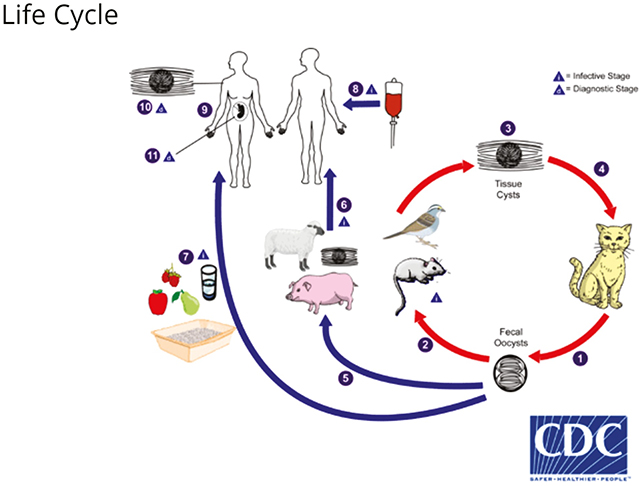Infection
Mind-Altering Cat Parasite May Trigger Frailty in Older People
An infamous parasite primarily carried by cats, Toxoplasma gondii, could be responsible for increased frailty in older adults, a new study reveals – and with 11-15 percent of people in the US thought to have been infected by it at some point, that’s a significant finding.
The discovery, made by an international team of researchers, adds to what we already know about T. gondii: that it can cause flu-like symptoms in many, and more serious issues such as seizures in people with weaker immune systems.
“We often think of T. gondii infection as relatively asymptomatic, but this study highlights that for some people it may have significant health consequences later on,” says physiologist Christopher Lowry from the University of Colorado Boulder.
The research team suspected that the parasite may be one of the causes of ‘inflammaging’, or persistent age-related inflammation that contributes to frailty. Blood tests from 601 Spanish and Portuguese adults aged over 65 were analyzed for measures of frailty, including unintentional weight loss, tiredness, and loss of mental sharpness.
While there wasn’t an association found between T. gondii infections and frailty, among those who had been infected by T. gondii, people who produced a higher number of antibodies to fight it were more likely to show signs of being frail.
To put it another way, there are signs of a link between a more severe immune reaction to this parasite, and a greater likelihood of being more frail in old age. It’s not enough to prove cause and effect, but it seems there might be something going on.
On the inflammaging front, those with a stronger response to T. gondii (perhaps through a more widespread infection, or multiple infections) also had higher levels of certain biomarkers of inflammation, suggesting another potential link there.
Considering infection rates for T. gondii rise as people get older, and that it can lie dormant and undetected in a human body for several decades, the researchers say we need to be even more careful when it comes to avoiding infection.
That can come through exposure to T. gondii eggs (in a cat’s litter box, for example, or water that they’ve contaminated), or through eating undercooked meat that’s been infected by the parasite. Keeping cats indoors and avoiding strays can help too.
In fact there are plenty of reasons to avoid T. gondii already. Infection from the parasite has previously been linked to skeletal muscle damage and even schizophrenia, because of its potential mind-altering effects.
“This paper is important because it provides, for the first time, evidence of the existence of a link between frailty in older adults and intensity of the response to T. gondii infection,” says psychobiologist Blanca Laffon from the University of A Coruña in Spain.
The research has been published in the Journal of Gerontology: Medical Science.

